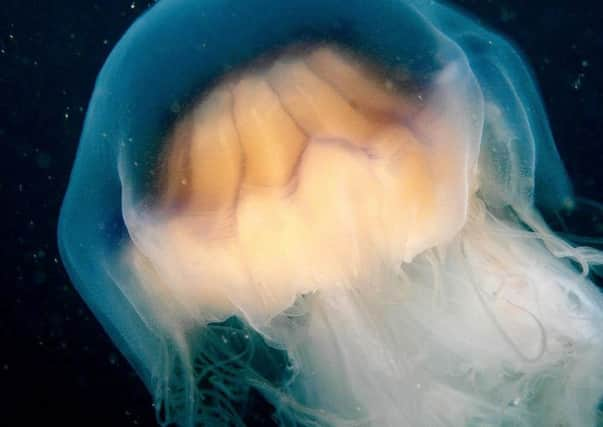Stinging jellyfish found on Scottish beaches
This article contains affiliate links. We may earn a small commission on items purchased through this article, but that does not affect our editorial judgement.


The appearance of the Lion’s Mane jellyfish has coincided with the seas warming up during the summer season.
The Marine Conservation Society (MCS) has asked the public to record sightings of the jellyfish, but stressed people should not touch them.
Advertisement
Hide AdAdvertisement
Hide AdThe Lion’s Mane is common to the northern Atlantic and uses its stinging tentacles to capture and eat prey such as fish, sea creatures and smaller jellyfish.
It has so far been a quiet year for jellyfish reports compared to the previous two years when there were record numbers of barrel jellyfish reported in UK waters.
Dr Peter Richardson, head of biodiversity at the MCS, said external factors could influence populations.
He said: “There’s evidence that jellyfish numbers are increasing in some parts of the world, including UK seas.
“Some scientists argue that jellyfish numbers increase and then decrease normally every 20 years or so, however, others believe these increases are linked to factors such as pollution, over-fishing and possibly climate change.”
Other species of jellyfish reported to the MCS national jellyfish survey include the moon species, the compass species and the common blue species.
DOWNLOAD THE SCOTSMAN APP ON ITUNES OR GOOGLE PLAY
